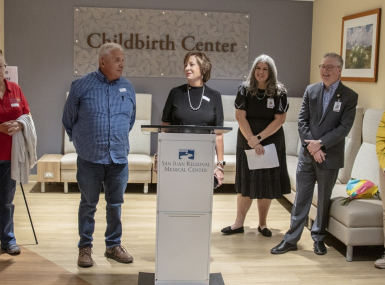Work with People from Where They Are
Author

Tim Rahschulte, Ph.D.
Upcoming Events
Related News

Do you remember the relationship between Mr. Miyagi and Daniel in the movie “The Karate Kid?” Daniel is being bullied and needs to face his rival, Johnny Lawrence from the Cobra Kai Dojo, in a local karate tournament. He looks to Mr. Miyagi, the maintenance man for the apartment complex where Daniel and his mom live, to train him. Instead of training Daniel based on “best practices” or the technique of the modern day, Mr. Miyagi orients his process around Daniel. He seeks first to know him and then to determine the methods that will work best given what he finds. Daniel ends up learning as much about life as he does about karate. The best coaches can have that kind of effect. They consider the individual capacity of their team before determining specific approaches for development. They coach at an individual level, knowing that each person is unique.
We all work to accomplish things. In doing so, we work with and rely on others. This means we have expectations of them. Often, however, these expectations are grounded in our own perspective, rather than in the abilities and motivations of those on our team.
Think about your team for a moment. It’s a team composed of people who want to do great work. They want to be part of a great team. And they’re very likely doing their absolute best based on what’s available to them. Do you believe that? You either do or you don’t. In either case, continual improvement is necessary and therefore personal and team development are necessary.
We can learn a lot about team development from the politician Henry Boyle. He said, “The most important trip you may take in life is meeting people halfway.” Perhaps more accurately, you must be willing to meet people where they are. For some, that may be halfway. For others, it may be a lot farther than you’d like to travel. But make the trip anyway; if you don’t, that person or those people will never live up to your expectations of them.
As a leader, it’s certainly right for you to have expectations — high expectations, no doubt. But those expectations shouldn’t be based unilaterally on a bias of our personal motivations and abilities; rather, you should determine them through individualized considerations of the abilities of those on our teams. Individualized consideration is one of the main principles of transformational leadership theory. Whether you’re familiar with leadership theories or not, you probably know the value of treating people uniquely — as individuals. Don’t work with people from where you are or where you wish they would be. Rather, work with people from where they are. Take the time to know the members of your team. Know their strengths, weaknesses, challenges and aspirations. Know if they’re doing their absolute best based on what’s available to them. Then show individualized consideration. Leverage their strengths to enable their success. Doing so will also improve the success of the team and your success as a leader. Work with people from where they are, not where you want them to be.
I regularly explain this rule and concept to leaders when they come to me for guidance, often frustrated from failed attempts at “training” their team. Have you ever had déjà vu moments regarding training sessions, conversations and what you thought were lessons learned? Maybe it happened during a project or moving a product to market or onboarding a new employee. It’s a moment when you think or even say aloud, “How many times do I need to say it?” Or it might be, “How many times do I have to show him?” or “How many times do I have to explain the same thing to her?”
I get it. It can be frustrating. But who’s at fault?
We don’t always learn things or change our behavior the first time we’re told something, the first time we read something or the first time we’re shown something. In other words, the lessons being taught may not necessarily be learned at the time of the lesson — or even shortly thereafter. In some cases, the lesson may need to be taught or experienced several times before the learning and the associated behavioral change actually occurs.
This is an important awareness to have: Lessons and learning may not be closely associated with time. So, aim for immediate learning from all lessons, but don’t expect that from any lesson. Manage your frustrations of this reality by realizing that learning is a process and unique to each individual person. Everyone learns at varying rates, and for some, learning will be closely associated with time relative to the lesson; for others, it won’t be closely associated with time. It’s for this reason that we need to work with people from where they are, not where we’d like them to be.

Attachments
Related News

Now I know I can adapt my communication style
San Juan County, N.M. Commissioner Terri Fortner spent her career working with people one-on-one, but she overcame hangups about online communication when the pandemic forced her onto video calls when she first took office.

County service meets a veteran’s need for purpose in Spotsylvania County, Virginia
After Drew Mullins transitioned from a high-performance lifestyle in the military, he found the environment and purpose he sought when he took office in his county.
Now I know that solid waste is complicated
Custer County, Idaho Commissioner Will Naillon says solid waste removal is "one of the things that people often take for granted until it’s their job to make sure it happens... that’s the story of being a county commissioner."